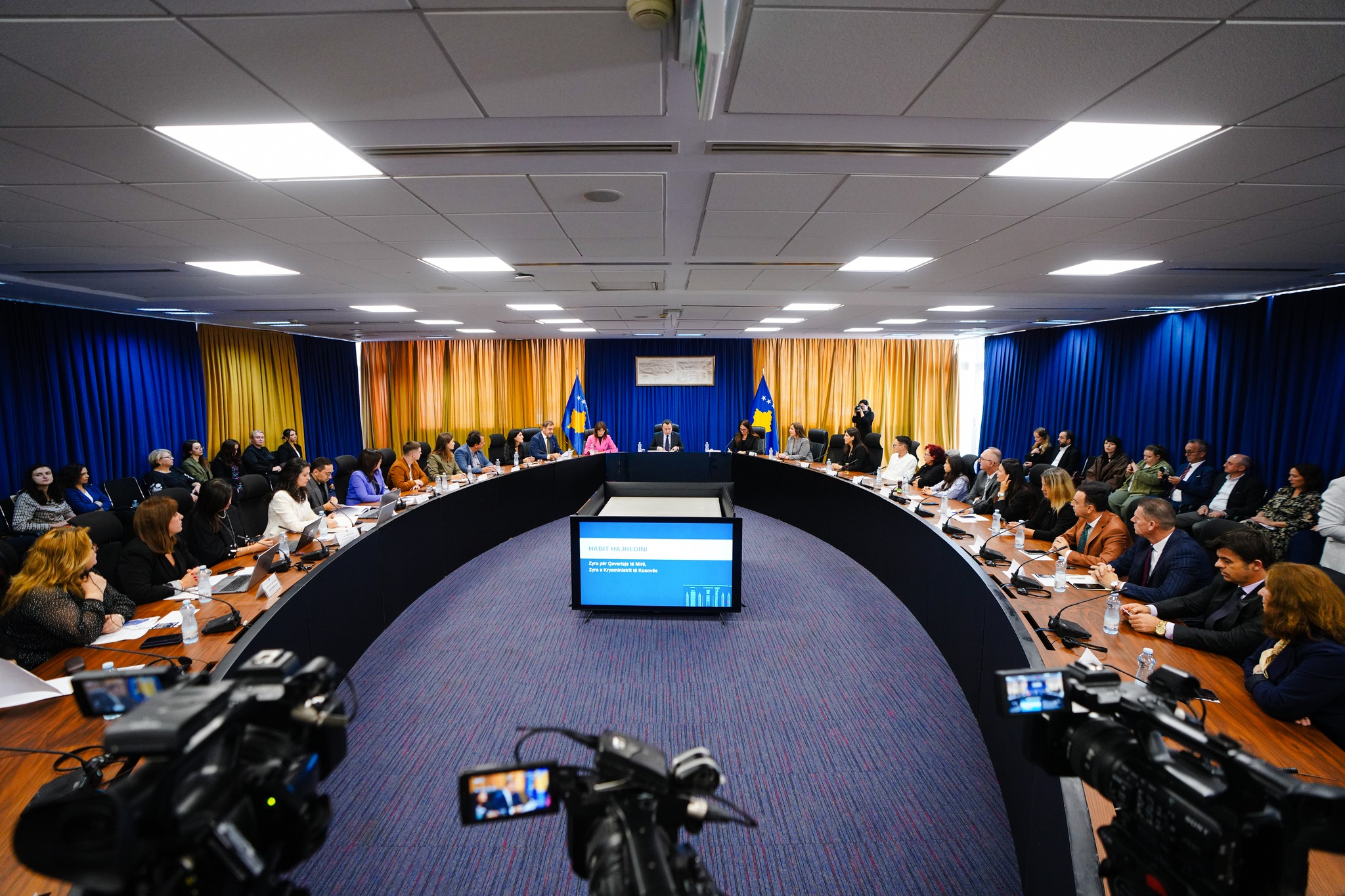
KOMF publishes Report Card – Kosovo received a score of 2.43 in childcare
Coalition of NGOs for Child Protection in Kosovo – KOMF, has published the second edition of the Monitoring Report “Report Card 2023″ – What is Kosovo’s overall score for childcare?
The report was launched at the Government of the Republic of Kosovo, with the presence of the Prime Minister, the Minister of Justice, the Minister of Education, the Deputy Minister of Health, Members of the Assembly of Kosovo, the Office of the Prime Minister of Kosovo, officials from relevant ministries, municipal institutions, international agencies, non-governmental organizations, and other partners.

The main objective of KOMF through this report is the independent monitoring by civil society of the state of children’s rights in the areas of social welfare, child protection, child health, early childhood development, education, and juvenile justice. The assessment of each area is based on a grading system similar to that used for students in Kosovo’s schools, ranging from grade one to grade five. To ensure accurate and comprehensive findings, this report was prepared by a broad group of co-authors, experts from KOMF’s member organizations, and external evaluators, who assessed each area using concrete evidence to support the assigned grade.

Social welfare is rated 2.68. Kosovo has prioritized social schemes in order to ensure the social well-being of children and families and has approved the new Law on Social and Family Services. However, the investments have not been sufficient to make a difference in the general population, in reducing child poverty and in guaranteeing the provision of sustainable social services to children and families in need.
Child protection is rated 2.52. The State of Kosovo has approved the 16 administrative guidelines arising from the Law on Child Protection and has established municipal mechanisms for the protection of children in most municipalities of Kosovo. However, this law has not yet been implemented. Preventive services and parenting programs, child protection homes and toll-free children’s hotlines have not yet been established, leaving the child protection system fragile and fragmented.

The child’s health was assessed with a grade of 2.6. The biggest achievement was the significant increase in the budget for health and the essential drug list. However, the resources available for children’s mental health in public health institutions were very limited. Also, preventive and rehabilitative services for drug-using children are largely lacking.
Early childhood development is rated 2.5. A positive development was the adoption of the Early Childhood Education Law, which is expected to begin the integration of services and the finalization and piloting of the Early Childhood Education Curriculum. However, Kosovo continues to have the lowest level of children’s involvement in preschool education compared to other countries in the region.
Education has been evaluated with a grade of 2.33. Kosovo has adopted the Policy for the Protection of Children, has adopted several Administrative Instructions to increase the quality of teaching, and has started the revision of school textbooks. However, these measures have not yet been reflected in the students’ results, where the passing rate in the Achievement Test for 2023 was only 52.1%.

Juvenile justice received a rating of 2. New programs have been established to empower and support minors toward rehabilitation, vocational training, and successful reintegration. However, the Open Educational Center does not accept direct admissions based on court decisions but only transfers from the Juvenile Correctional Center, contrary to the Juvenile Justice Code. Additionally, in 2023, the staff at the Educational Center reverted to wearing police uniforms instead of the civilian clothing previously worn. The situation is also problematic for children in conflict with the law, under the age of criminal responsibility, as there is no specialized center or home for their treatment and rehabilitation.

“Report Card” is supported by “SMART Balkans – Civil Society for Shared Society in the Western Balkans” regional project implemented by the Centar za promociju civilnog društva (CPCD), Center for Research and Policy Making (CRPM) and Institute for Democracy and Mediation (IDM) and financially supported by the Norwegian Ministry of Foreign Affairs (NMFA).

Recent Comments